May 17, 2025 | 15:09 GMT +7
May 17, 2025 | 15:09 GMT +7
Hotline: 0913.378.918
May 17, 2025 | 15:09 GMT +7
Hotline: 0913.378.918
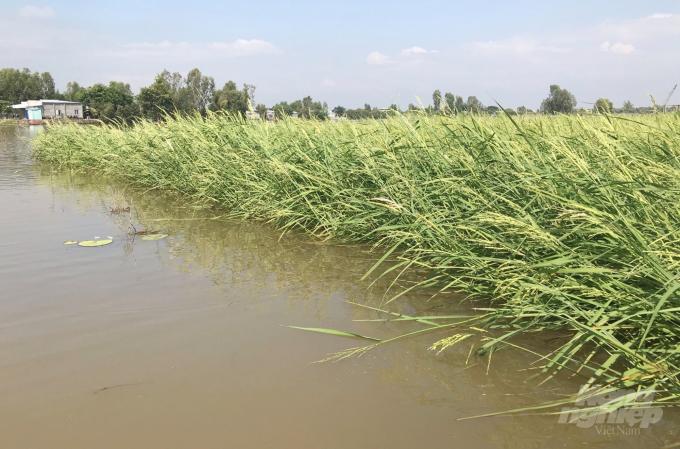
Floating rice production in Tri Ton district (An Giang). Photo: Le Hoang Vu.
Floating rice has been cultivated by the locals in the Mekong Delta since before 1985. This is a rice variety with an extremely unique biological mechanism. Farmers grow this rice variety according to the traditional method, without fertilizer, spraying pesticides, sowing in the 5th month in the lunar month... The rice plant itself germinated with dew and then grew.
In particular, this rice variety is different from other rice varieties in that it is grown in favor of the flood season. When the flood water from the Mekong River pours in, wherever the water rises, the rice plants outreaches it, up to 3 - 5m in length, overcoming the flood surface to grow and bloom with the growth time of about 6 months, hence the name “floating rice”.
Floating rice also creates favorable conditions for aquatic species to shelter, multiply and grow during the floating season, helping farmers increase income. This rice variety is rich in nutritional value, grows in favor of the environment, has little impact on the environment, has the ability to adapt to climate change and can be cultivated in deep floodplains.
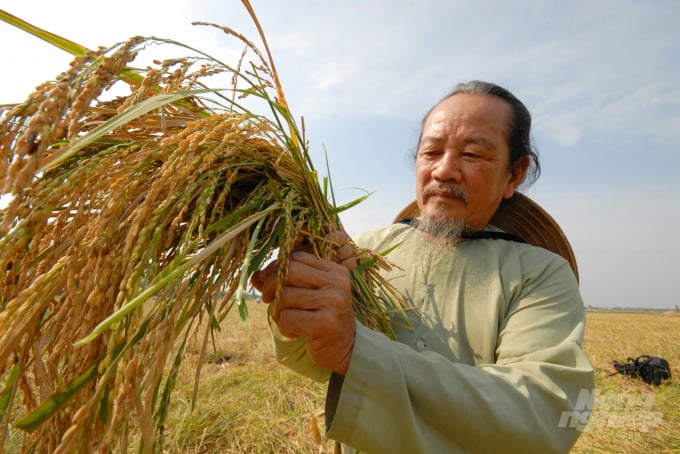
Floating rice is currently a specialty in the Long Xuyen Quadrangle, with an area of about 70 ha, mainly concentrated in Vinh Phuoc and Luong An Tra communes. Photo: Le Hoang Vu.
Most farmers grow floating rice without using fertilizers and pesticides, mainly relying on nature, so the rice grain has a very high nutritional value. At present, the floating rice growing area in Tri Ton has had many businesses agreed to underwrite the products with the price from VND 14,000 to 15,000/kg, and the rice price from VND 25,000 to 26,000/kg.
In recent years, not a lot of flood water has come, which also makes it difficult for the growth and development of floating rice because of pest attacks, especially damages caused by rats. But in return, this specialty rice can be produced without much labor and investment costs like other high-yield rice.
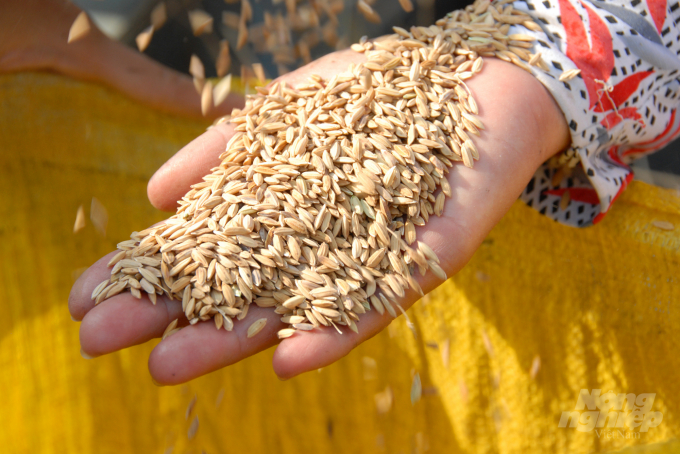
Farmers growing floating rice acquire a profit of over VND 3.5 million/work/crop on average, which proves that the economic efficiency is usually higher than normal high-yield rice. Photo: Le Hoang Vu.
In order to expand the floating rice growing area in the Mekong Delta, Loc Troi Group and the People's Committee of Tan Hung district (Long An) has recently signed a cooperation agreement to produce floating rice in the Mekong Delta in about 100 ha of Vinh Dai commune, cultivated according to the sustainable rice platform (SRP).
The farmers’ production is organized by Loc Troi Group, sowing Nang Tay Dum floating rice seeds with an amount of about 80 kg/ha by drone, instead of sowing by hand - farmers’ previous habit.
At the end of the crop, Loc Troi Group will guarantee the consumption of all post-harvest output. In addition, Loc Troi will also support farmers and cooperatives to register collective trademarks, planting area codes, and barcodes for traceability, ensuring rice quality and enhancing the brand name of floating rice in the market.
Translated by Samuel Pham
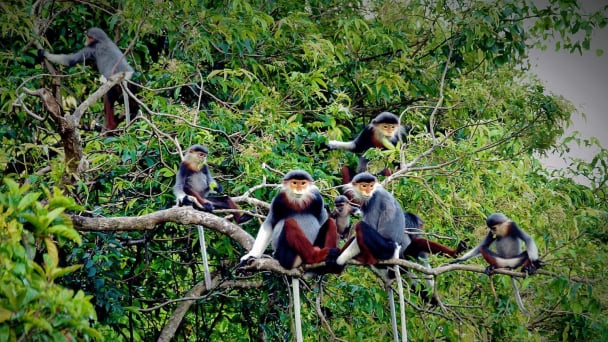
(VAN) The United Nations designated 22 May as the International Day for Biodiversity 2025 with the theme 'Harmony with nature and sustainable development.'
![Multi-channel, multi-directional Vietnamese agricultural markets: [8] A national strategy is needed](https://t.ex-cdn.com/nongnghiepmoitruong.vn/608w/files/phucpm/2025/05/15/1435-thi-truong-nong-san-viet-da-kenh-da-huongbai-8-can-mot-chien-luoc-quoc-gia-084750_728.jpg)
(VAN) The Chairman of Hung Nhon Group shared: ‘Opening up and tapping into new markets is the right and strategic direction for Vietnam's agricultural sector.’
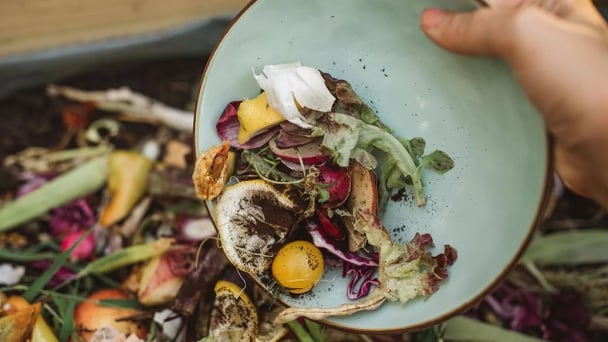
(VAN) Food waste has become a serious issue in modern society, especially in rapidly urbanizing and developing cities like Hanoi.
![Multi-channel, multi-directional Vietnamese agricultural markets: [7] Deep processing makes global reach easy](https://t.ex-cdn.com/nongnghiepmoitruong.vn/608w/files/huytd/2025/05/16/2946-che-bien-sau-chia-khoa-vang-nang-tam-nong-san-viet-tren-ban-do-the-gioi-080603_110-093858.jpg)
(VAN) The application of deep processing technology is helping Vietnamese agricultural products enhance their value, create competitive advantages, and open doors to conquer global consumers.
![Multi-channel, multi-directional Vietnamese agricultural markets: [6] Agri products go online](https://t.ex-cdn.com/nongnghiepmoitruong.vn/608w/files/content/2024/12/10/1-113313_954.jpg)
(VAN) Bringing agri products onto e-commerce platforms is an effective way to build a brand that many businesses, cooperatives, and agricultural production households are doing.

(VAN) Veterinary training should focus on quality, not just quantity. Veterinarians also need more options to pursue specialized training.

(VAN) The veterinary industry needs to be viewed objectively and further invested in to properly demonstrate its role and importance in the new context.